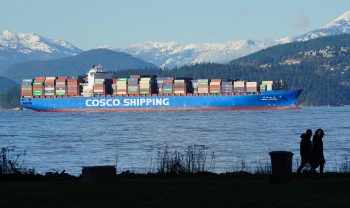International trade impacts most of our lives on a daily basis. Let’s take a trip to your local grocery store as an example. Year-round, you can enjoy fresh fruits and vegetables, regardless of where you live. This, of course, is thanks to international trade as these fruits and vegetables are imported from countries where they are in season.
Access to a wide variety of products that are either not locally available or would be too expensive to produce locally is one of the most apparent benefits of international trade. What may not be so apparent, however, is the people and processes necessary to make sure those products are available to the end consumer.
In this post, we’ll shine a light on one of the vital roles in supply chain management that helps to ensure those shelves remain stocked: the role of the global logistics manager.
What does a Global Logistics Manager do?
A global logistics manager is responsible for the management and oversight of the supply chain and logistical operations of a company on a global scale. The role is critical to ensuring the efficient operation of a company’s global supply chain, which is fundamental to the success of any business performing globally.
Common Global Logistics Manager Job Responsibilities:
- Manage the logistic operations of a company’s global supply chain including overseeing transportation, warehouses, and distribution centers, and coordinating with freight forwarders and other third-party logistic partners.
- Develop and implement logistical processes and strategies to optimize supply chain operations and reduce costs.
- Monitor performance and analyze global market trends to identify opportunities for improvement and implement changes to optimize operations.
- Lead and manage a team of logistics professionals including coordinators, transportation managers, and warehouse managers.
- Manage relationships with key stakeholders, customers, suppliers, and vendors.
- Oversee the development and delivery of training programs to employees.
- Ensure compliance with international trade regulations, customs requirements, and industry standards.
- Implement logistics auditing tools and monitoring dashboards.
Skills Required for Global Logistics Managers:
- Excellent communication and organization skills.
- Strong analytical and problem-solving skills.
- Knowledge of international trade laws and regulations.
- Exceptional management and leadership skills.
- Strict attention to detail and the ability to adapt.
- Effective project management skills.
- Able to work in high-pressure environments.
Training and Education:
To become a global logistics manager, typically you will need a bachelor’s degree in logistics, supply chain management, business administration, or some other related field. In some cases, employers may require a master’s degree.
Specialized international trade certificate and diploma programs are also very helpful in demonstrating expertise and widening career opportunities.
There are many other factors to consider when exploring a career as a global logistics manager, including:
- Experience: Many companies require several years of experience in logistics or supply chain management.
- Knowledge: The ability to demonstrate a strong understanding of the particular industry you’re considering is imperative to successfully manage and oversee logistics operations.
- International Experience: Practical work experience involving international customers, suppliers, and vendors can prove to be very valuable to prospective employers.
- Networking: Establishing connections with other logistics professionals, attending applicable trade shows, and obtaining membership with industry organizations can not only help you to remain current on trends but also learn about new career opportunities.

Global Logistics Manager Career Outlook
According to the Government of Canada Job Outlook Report, the employment prospects for the role of global logistics manager for the 2023-2025 period vary from ‘Undetermined’ (0 out of 5 stars) to ‘Good’ (4 out of 5 stars) depending on where in the country you’re searching.
Note: The global logistics manager role falls under the National Occupational Classification group of Managers of Transportation. The employment projections are for the group as a whole.
Job Outlook by Province for Managers of Transportation:
- Newfoundland and Labrador – Undetermined
- Prince Edward Island – Undetermined
- Nova Scotia – Moderate
- New Brunswick – Limited
- Quebec – Good
- Ontario – Moderate
- Manitoba – Moderate
- Saskatchewan – Moderate
- Alberta – Moderate
- British Columbia – Limited
- Yukon Territories – Moderate
- Northwest Territories – Limited
- Nunavut – Good
Wages for Managers in Transporation
Note: These wages were updated on November 16th, 2022.
| Location | Low ($/hour) | Median ($/hour) | High ($/hour) |
| Canada | 26.48 | 46.67 | 72.82 |
| Newfoundland and Labrador | N/A | N/A | N/A |
| Prince Edward Island | 28.21 | 38.46 | 67.31 |
| Nova Scotia | 28.21 | 38.46 | 67.31 |
| New Brunswick | 32.69 | 39.90 | 52.88 |
| Quebec | 26.40 | 48.08 | 76.92 |
| Ontario | 27.50 | 47.60 | 75.96 |
| Manitoba | 22.12 | 50.00 | 64.90 |
| Saskatchewan | 26.48 | 38.46 | 55.90 |
| Alberta | 30.00 | 41.27 | 61.54 |
| British Columbia | 26.44 | 44.10 | 72.82 |
| Yukon Territories | 34.75 | 55.14 | 66.61 |
| Northwest Territories | 35.64 | 50.66 | 67.75 |
| Nunavut | 30.58 | 42.88 | 59.69 |
Source: https://www.jobbank.gc.ca/wagereport/occupation/296022
Where do Global Logistics Managers Work?
Global logistics managers work in any industry or organization that has global supply chains that require management and oversight. They can work in a variety of settings such as manufacturing facilities, warehouses, distribution centers, and corporate offices. Global logistics managers commonly work in the following industries:
- Manufacturing companies.
- Consumer goods.
- Technology companies.
- Healthcare companies.
- Transportation and logistics companies.
- And many more.
Interested in a Career in International Trade?
If you are interested in pursuing a career as a global logistics manager or any other career in international trade, Brighton College may be right for you. We offer several international trade courses and programs focused on the development of your skillsets in global logistics, international marketing, supply chain management, and trade finance.
Brighton College has partnered with the Forum for International Trade Training (FITT) and the Canadian International Freight Forwarders Association (CIFFA), to deliver high-quality and industry-recognized trade programs.
Whether you choose to pursue a diploma or earn a certificate, Brighton College has industry-ready options for you. To find out more about enrolling in and obtaining certification from our international trade program, please fill out the form below.





